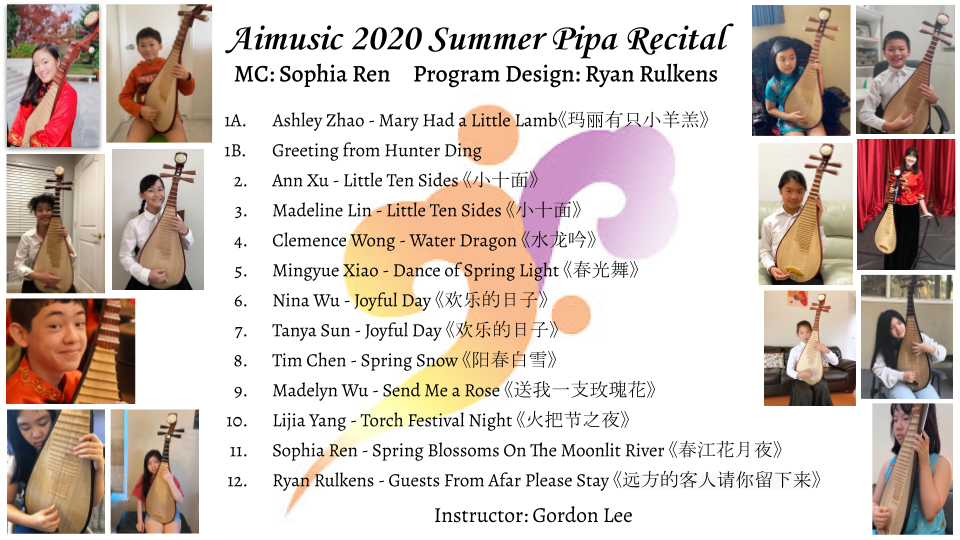Pipa
Pipa is a four-stringed plucked instrument and sometimes called the Chinese lute. Modern Pipa originated in Central Asia and arrived in China in the 4th century AD. The Pipa reached a height of popularity during the Tang Dynasty (618–906), and was a principal musical instrument in the imperial court. It was also mentioned frequently in the Tang poetry. The famous one is the Pipa Xing by great poet Bai Juyi. With a pear-shaped wooden body, the most common Pipa today has 6 bone-ledges on its neck and 30 bamboo frets on its belly. Held vertically on the lap, the player plays it using artificial fingernails. The range of techniques that can be used are the widest among all of the Chinese plucked-strings, making it the most expressive in the plucked instrument.
Qi Miao
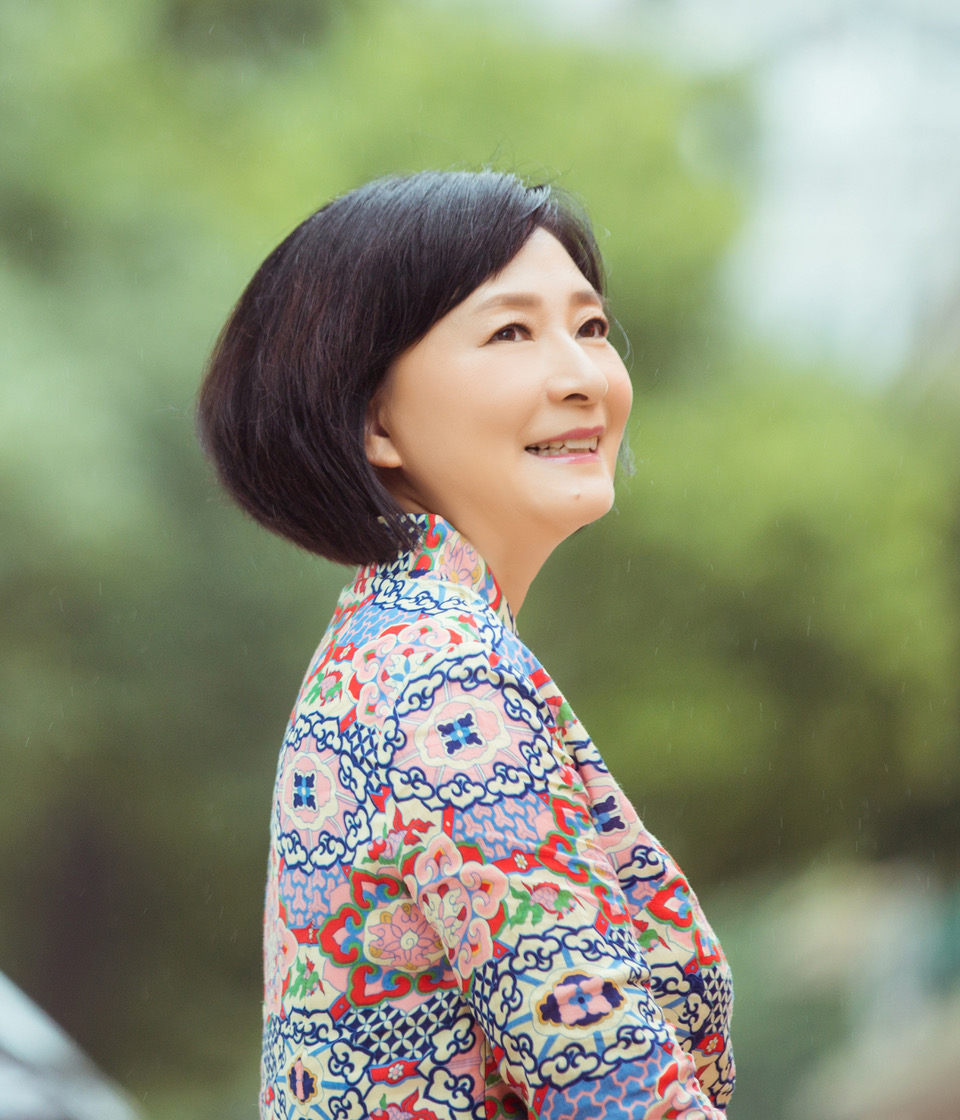 MIAO Qi, born in Shanghai, began studying the Pipa at the age of 11. She entered the middle school of Central Music Conservatory in 1977, and graduated from the conservatory in 1987. In 1989, she won the second prize in the National Chinese Instrumental Music “Mountain Cup” TV Competition by CCTV, and moved to Sweden for further study in 1990.
MIAO Qi, born in Shanghai, began studying the Pipa at the age of 11. She entered the middle school of Central Music Conservatory in 1977, and graduated from the conservatory in 1987. In 1989, she won the second prize in the National Chinese Instrumental Music “Mountain Cup” TV Competition by CCTV, and moved to Sweden for further study in 1990.
Since the freshman year of junior high, Ms. Miao studied with the great Pipa virtuoso, Professor WANG Fandi. She is the only Pipa major to have followed Prof. Wang for 10 consecutive years. She is gifted both physically and intellectually for acquiring the essence in Prof. Wang’s tone-based pedagogy, and has become one of the very few Pipa performers with perfect right-hand techniques in her era.
Professor Wang has been widely acclaimed for his well calculated movements of the left fingers, delivering exquisite touches on the strings. As Wang’s long-time follower, Ms. Miao was trained to master these delicate details to produce the best tone and dynamics. Moreover, she uniquely insists on preserving the traditional Chinese style, rather than westernizing Chinese music.
In 2015, ROI Dragon’s Music published her double CD set Thoughts on Strings. 15 out of the 17 songs are chosen from Scores for the Pipa authored by Prof. Wang, who gave high praise for her performance.
- Score: 9.67
- Director of the Competition Committee: PENG Xiuwen
- Deputy Director: PIAO Dongsheng, LU Rirong
- Committee Members: LIU Wenjin, HU Dengtiao, LI Yinghai, SONG Long, ZHU Guangqing, ZHAO Songting, WANG Tiechui, LIN Shicheng, WANG Fandi
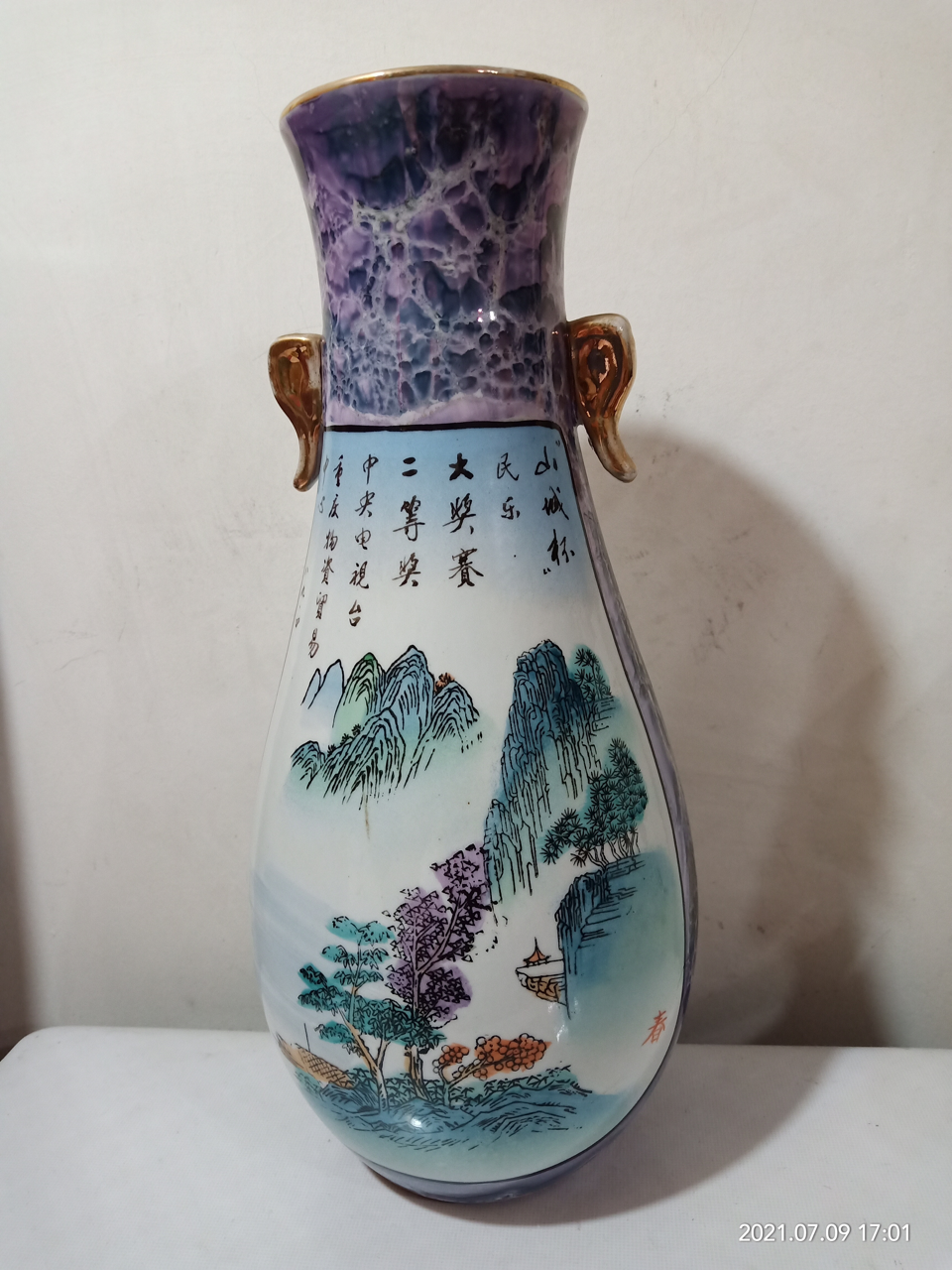
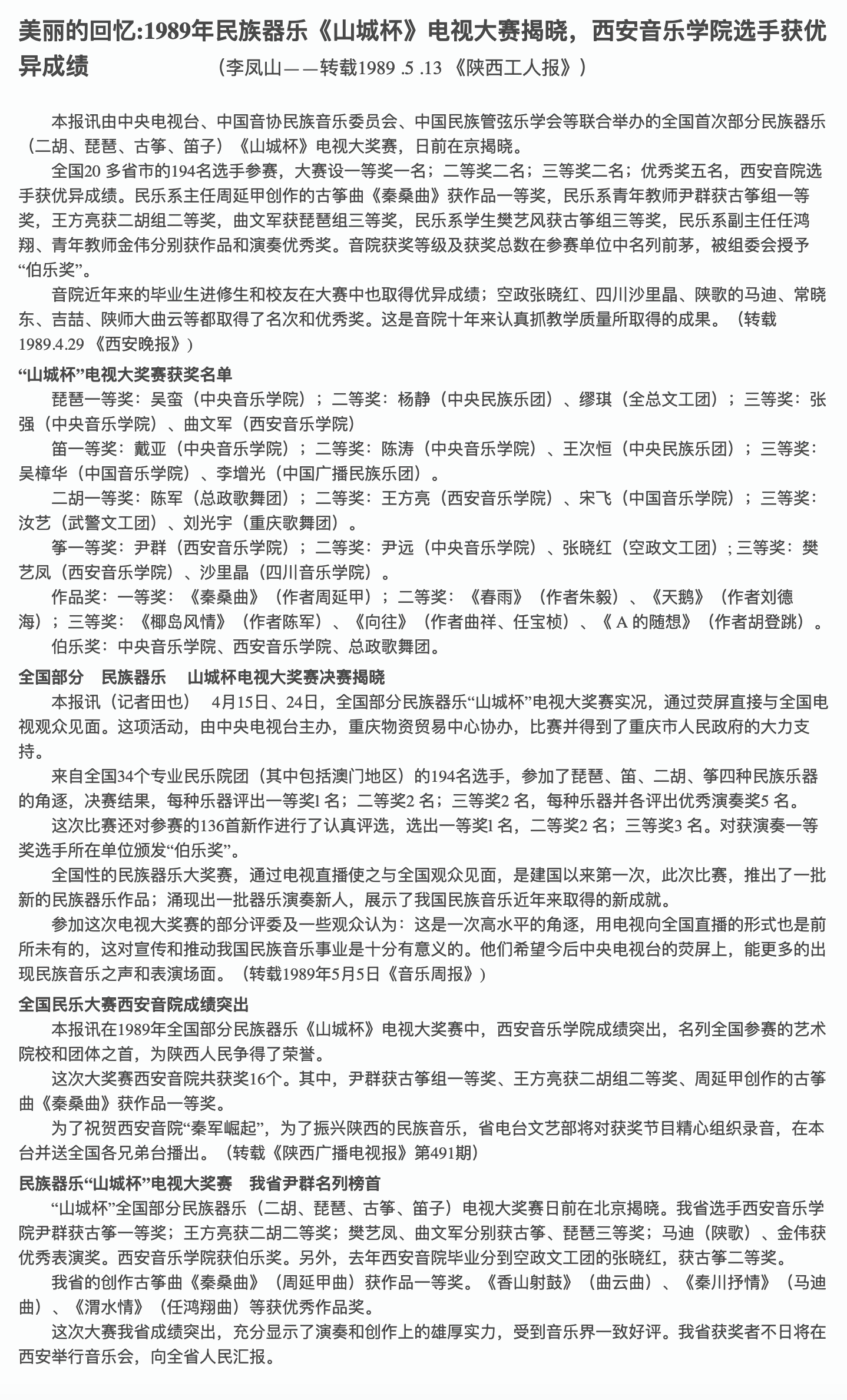
Pipa Zheng Duet Moonlit Flowers on the Spring River, The 6th International Aimusic Festival, Online live concert, May 2021
Pipa Solo Dragon Boat, The 6th International Aimusic Festival, Online live concert, May 2021
Learned 9 Months Online
Learned Less Than 2 Years Online
Learned 3.5 Years Mainly Online
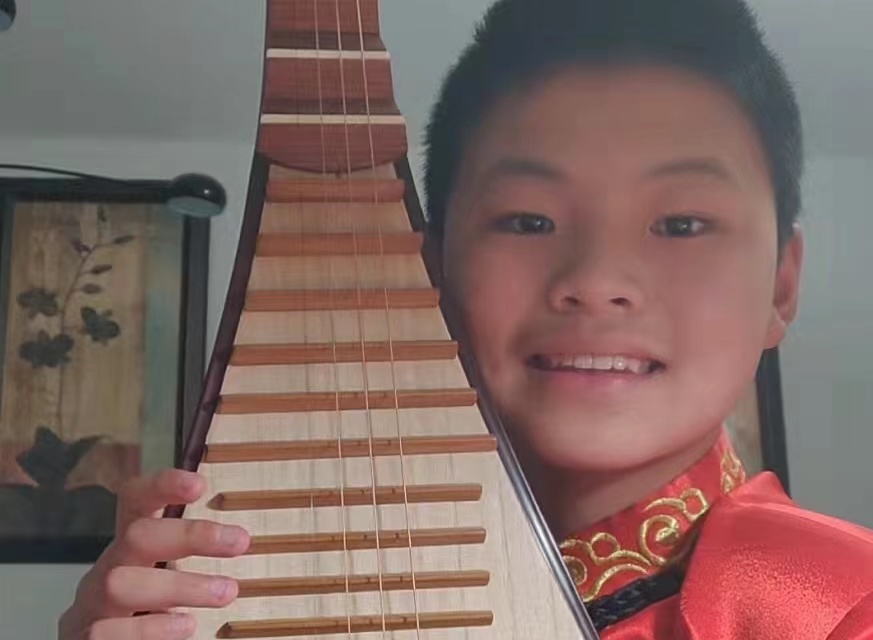 I’ve been learning the Pipa for around 5 years. When I first started, I remember that I didn’t really enjoy playing. But through Mr. Lee and Ms. Miao’s encouragement, I began to like music as well as my instrument. Currently, I am in FYCO. Ms. Miao has been teaching me for around a year now, and I really do appreciate it. It was a huge opportunity to improve my skills, and I can say that I’m not disappointed. If I don’t understand something or do something that isn’t correct, Ms. Miao will show me on her Pipa. She’s taught me different styles of Pipa music, as well as how to have the correct form in order to bring out the best of the Pipa music. Her personality is great, and I enjoy having class with her as it is interactive and interesting. Her class will improve my fundamental skills as well as learn new and advanced ones. Ms. Miao is quick to respond to any questions and she will try to help all her students and bring out the best of each.
I’ve been learning the Pipa for around 5 years. When I first started, I remember that I didn’t really enjoy playing. But through Mr. Lee and Ms. Miao’s encouragement, I began to like music as well as my instrument. Currently, I am in FYCO. Ms. Miao has been teaching me for around a year now, and I really do appreciate it. It was a huge opportunity to improve my skills, and I can say that I’m not disappointed. If I don’t understand something or do something that isn’t correct, Ms. Miao will show me on her Pipa. She’s taught me different styles of Pipa music, as well as how to have the correct form in order to bring out the best of the Pipa music. Her personality is great, and I enjoy having class with her as it is interactive and interesting. Her class will improve my fundamental skills as well as learn new and advanced ones. Ms. Miao is quick to respond to any questions and she will try to help all her students and bring out the best of each.
- Tim Chen
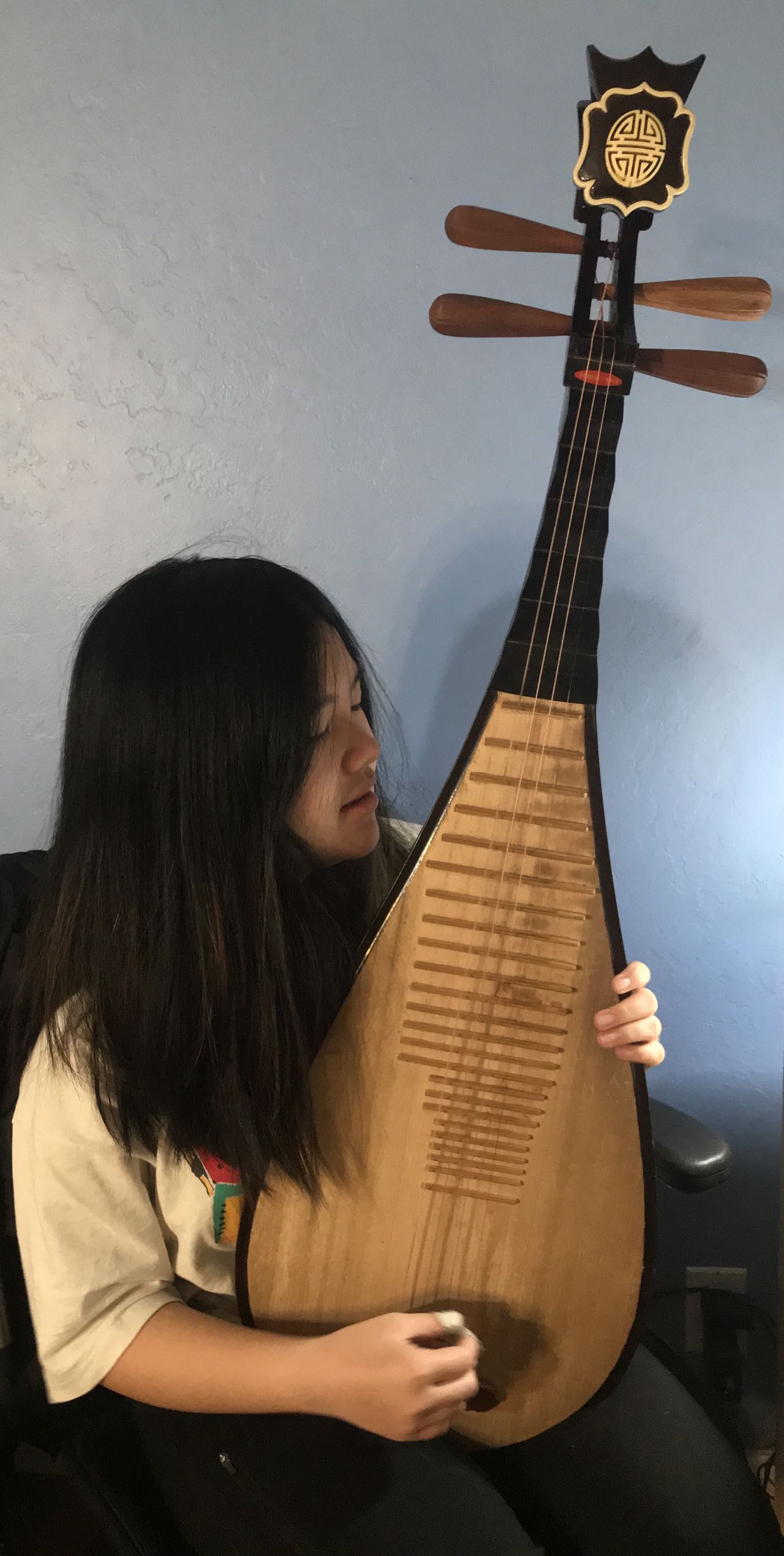 Ms. Miao is a wonderful teacher. Last year, I was really struggling in basic techniques, and she kindly explained them in a very simple manner. Through her great explanations I was able to approach the instrument differently and learn songs I never thought I could. Additionally, coming from a Western music background, I was unfamiliar with the different nuances of Chinese music, but she patiently guided me. There are times where I put off practicing, but her work ethic and discipline inspire me to continue learning the Pipa. Based on my great experiences as her student, I think Ms. Miao can help any student learn this instrument!
Ms. Miao is a wonderful teacher. Last year, I was really struggling in basic techniques, and she kindly explained them in a very simple manner. Through her great explanations I was able to approach the instrument differently and learn songs I never thought I could. Additionally, coming from a Western music background, I was unfamiliar with the different nuances of Chinese music, but she patiently guided me. There are times where I put off practicing, but her work ethic and discipline inspire me to continue learning the Pipa. Based on my great experiences as her student, I think Ms. Miao can help any student learn this instrument!
- Madeline Lin
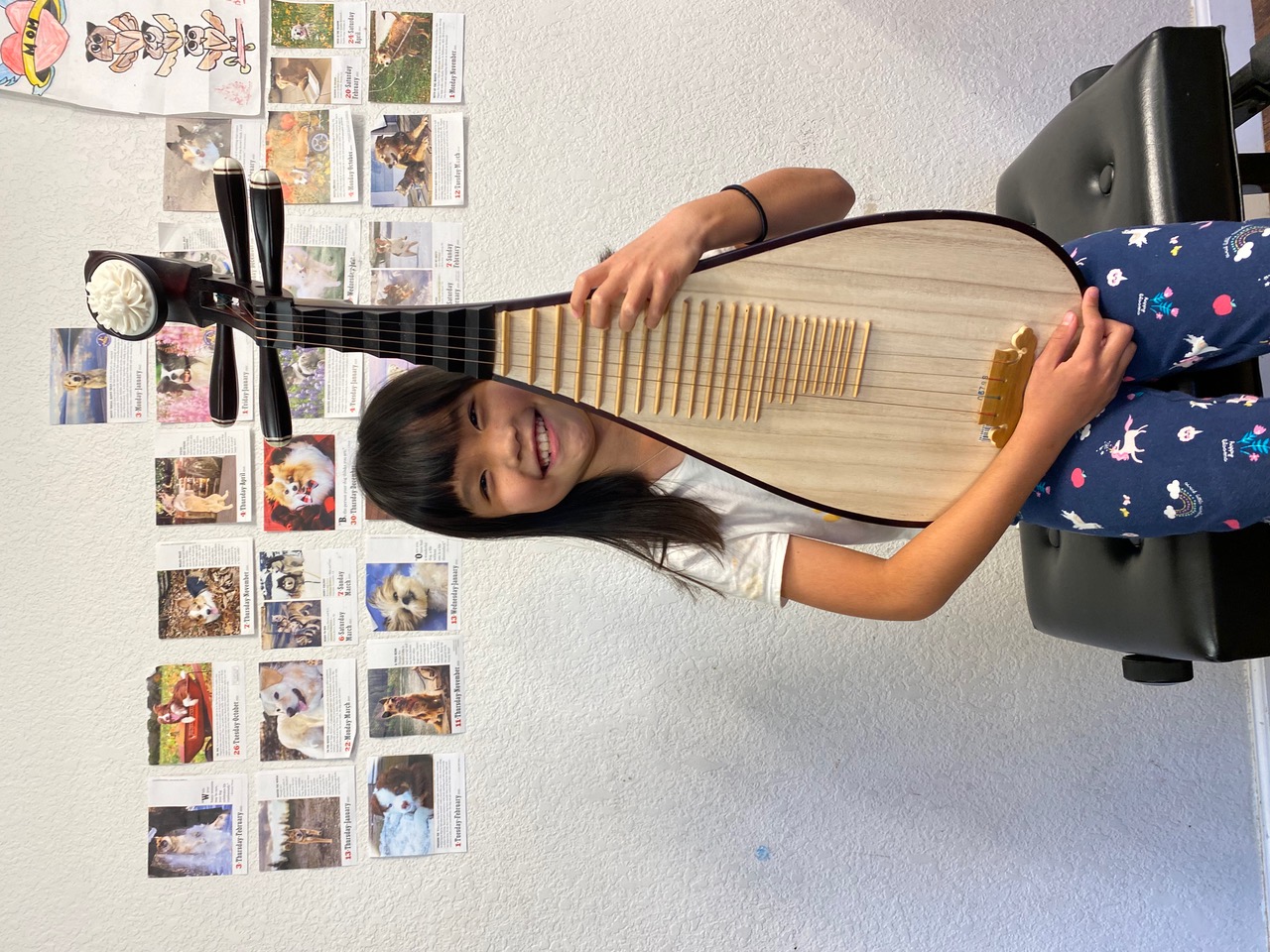 My 9 years old daughter has been learning with Ms. Miao over half a year and made good progress. Ms. Miao is very professional not only in playing Pipa but also in teaching Pipa. The most important thing is that she is also very patient. My daughter had a lot of fun while learning how to play the Pipa. She likes Ms. Miao very much. Ms. Miao knows how to encourage kids and is very responsible.
My 9 years old daughter has been learning with Ms. Miao over half a year and made good progress. Ms. Miao is very professional not only in playing Pipa but also in teaching Pipa. The most important thing is that she is also very patient. My daughter had a lot of fun while learning how to play the Pipa. She likes Ms. Miao very much. Ms. Miao knows how to encourage kids and is very responsible.
- Jinhong
Gordon Lee
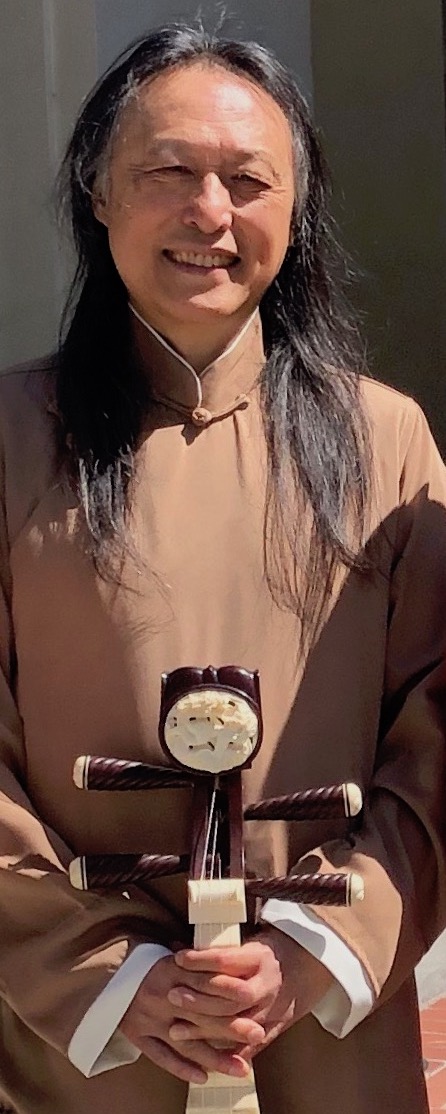 Lee went to a farm bordering China and Russia in 1969 and joined a local Peking Opera group the year after. He entered China Pingju Opera Theater as a professional Pipa player in 1978. Gordon studied the Pipa under Prof. HAN Shude in Sichuan Conservatory of Music, and Prof. WU Junsheng in China Conservatory of Music, and also received instructions from traditional Chinese music giants JIANG Fengzhi, YANG Dajun, and LIN Shicheng.
Lee went to a farm bordering China and Russia in 1969 and joined a local Peking Opera group the year after. He entered China Pingju Opera Theater as a professional Pipa player in 1978. Gordon studied the Pipa under Prof. HAN Shude in Sichuan Conservatory of Music, and Prof. WU Junsheng in China Conservatory of Music, and also received instructions from traditional Chinese music giants JIANG Fengzhi, YANG Dajun, and LIN Shicheng.
When working in the Theater, Lee began following Pipa Master WANG Fandi, and greatly admired his “tone quality as the foundation” for plucked instruments. WANG’s scientific performing method and profound interpretation and high exertion of Chinese traditional aesthetics have had a lifetime impact on Gordon. LI Jingxia, the Pipa professor and former director of the department of Chinese instruments in Shanghai Conservatory of Music, and TAN Longjian, the Sanxian Professor in Central Conservatory of Music, are the most outstanding successors and representatives of the WANG Fandi School. As “study siblings,” they give Lee many academically important inspiration and advice. Gordon came to the US in late 1980s. He started teaching the Pipa in San Francisco Bay Area in 1994. From 2001 to 2012, Lee was a Chinese music instructor at San Jose City College music department. Being very sensitive to tone quality and articulations, he focuses on developing students’ fundamental skills. He can instantly discover student technical problems and resolve them quickly. In addition to the Pipa heritage, he also pays attention on nurturing students’ intuition, logic, critical thinking, and leadership.
Online teaching brings a unique opportunity for intuitive and responsible instructors. Since the shelter in place in March 2020, online lessons have become the only learning method. Lee gives comprehensive Pipa performing techniques through the internet characterized lessons. His vivid demonstrations and explanations enables all students, whether groups or individuals, adults or children, to have a greater progress than face-to-face classes.
China Pingju Opera Theater 1981 Story of the Birthmark starring Ma Tai & Liu Ping
Conducting Chinese orchestra Prelude & Bow Dance from Dagger Society (Year: 2019 Concert hall capacity: 1,122 seats)
Student Performance
Pipa solo Ten Sides Ambushes (Year: 2012, Theater capacity: 340 seats)
Pipa unison Going to the Flower Fair (Year: 2001, Theater capacity: 300 seats)
Plucked instrument ensemble Firebird (Year: 2011, Theater capacity: 340 seats)
Pipa unison Melody of Peking Opera (Year: 2016 Concert hall capacity: 1,122 seats)
Pipa Basic Plucking (English)
Pipa Wheel Practice (Mandarin)
Two-String Wheel Fundamental (Mandarin)
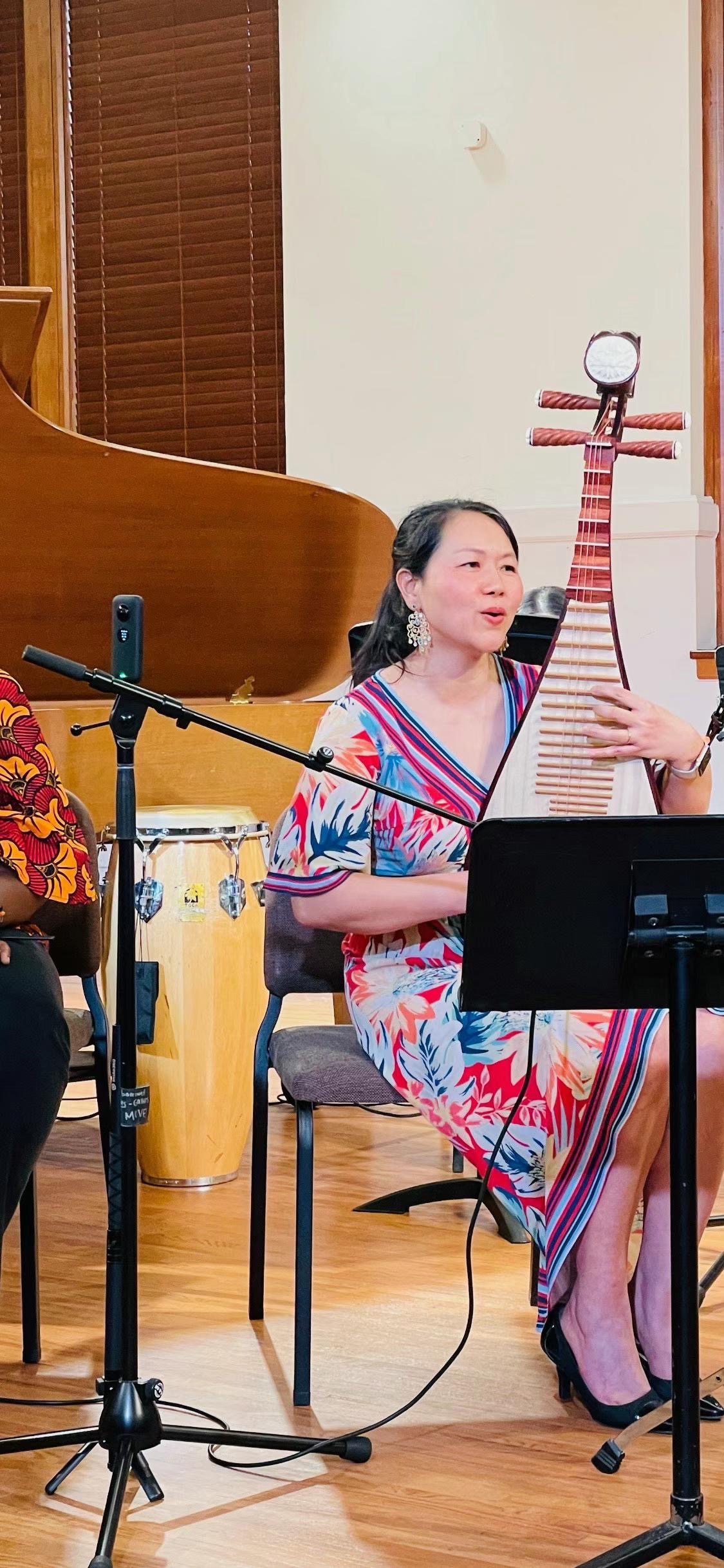 Jan 12, 2024
Jan 12, 2024
Pipa is an instrument that I have longed for since I was a teenager, but I was not able to learn it at that time. Only did I have the opportunity to start pipa lessons after coming to the United States when my life was stable. Before having online lessons with Mr. Gordon Lee, I learned from 4 professional teachers but didn’t find any feeling of playing it. Also I got some bad habits. I would feel nervous when playing the Pipa, and my fingers even hurt for a while. Now, I have been learning the Pipa online with Mr. Lee for a year and half. He first helped me relax my arms and fingers. Only then did I begin to appreciate the musicality of Pipa with relatively pleasant sound since my body, arms, hands, and fingers relaxed.
Compared with other instruments, the pipa is extremely technical, and requires very precise guidance in playing finger-rolling, etc. Otherwise, it is very easy to encounter bottlenecks and be unable to improve. First of all, Gordon is proficient in traditional Chinese music. His pipa teaching also incorporates the aesthetic traditional music. I teach Chinese language and culture courses at a university in the southern United States, and this has been very helpful. Secondly, under Lee’s teaching tenet of “taking the tone quality as the foundation”, while my pipa playing skills are slowly improving, the beauty of the sounds I play is also slowly improving, which is commendable. More importantly, Teacher Lee’s teaching methods are flexible and changeable, and he can adjust the teaching methods according to the needs of students at different stages, including music selection, the focus of each class, etc. In addition, Gordon is not only scientific but also has a sense of life when teaching skills. For example: when explaining the wheel technique, he would use the design principles of Zhaozhou Bridge to explain why the hand shape helps fingertip motions; when explaining arm weight, he would use the method of holding a hammer to help me find an easy manner to achieve a more beautiful sound. All the techniques he teaches always serve the music. Each technique will be arranged and practiced in the music in time, and he will draw inferences from one example, giving me a constant sense of accomplishment.
Comparing with other instruments, I think the pipa is more difficult to learn. If it weren’t for Mr. Lee’s constant encouragement, patience and care in teaching, and the visible and constant small progress under his guidance, I would have given up. It is rare to find a good teacher, so I am grateful for the good relationship between teacher and student.
Jane P.
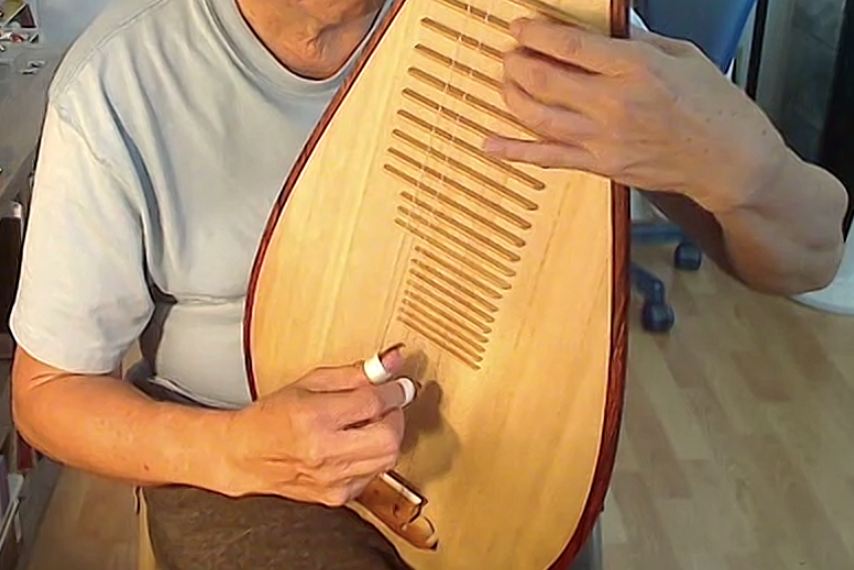 July 14, 2023
July 14, 2023
Gordon Lee has been my Pipa instructor for two years. I have been studying from another instructor previously and had developed some very bad habits on the Pipa. When I came to Gordon I was already over 60 years old and was losing hope in the instrument.
Gordon was immediately encouraging, never feeling like age could hinder learning. He wanted to know what my goals were and tailored the class to meet me. Gordon has a very sharp eye and has very sharp ears. If my timing is off or if I played too harshly, he picks it up at once. He could tell when my fingerings were incorrect to the most minute detail even though our lessons were all virtual. He corrected my bad habits a little at a time and was very patient in repeating it over and over again until I could grasp it.
He is good at coming up with similes to get his points across. When I fall backwards and am discouraged, he is always encouraging and uplifting. He watches out for my posture, body, fingers, hands and elbows, and make sure I’m not doing anything that could harm my muscles.
With my years of learning Pipa from other instructors, this was the first time I felt that I’ve improved and is getting to where I want to go. I really recommend Gordon as a Pipa instructor.
––James Wong
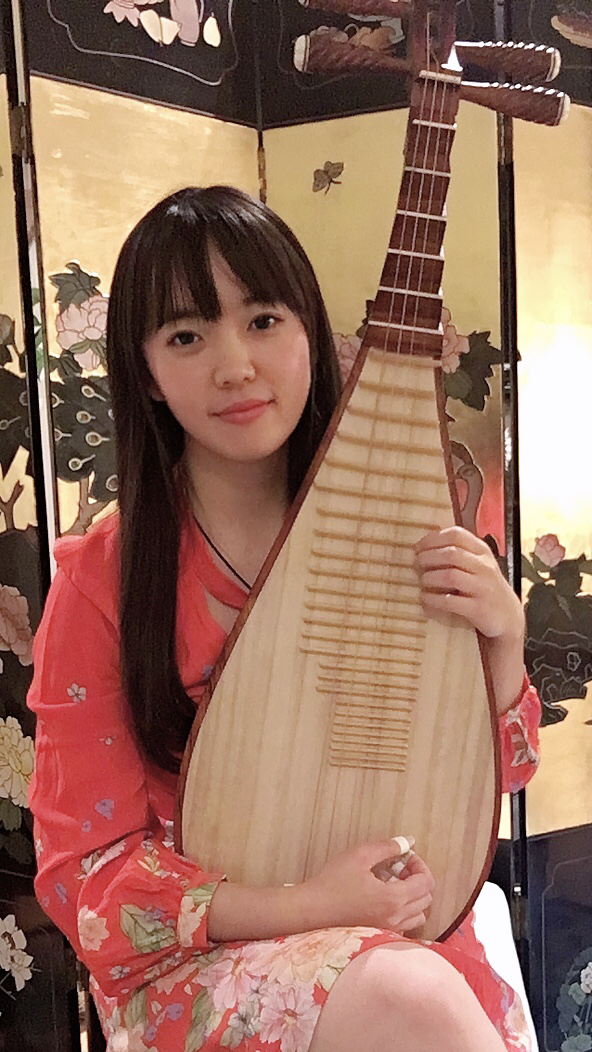 May 6, 2020
May 6, 2020
When I saw a real Pipa for the first time at a Chinese traditional music concert, I was still a graduate student. It sounded just like music from heaven and amazingly impressed me. After finishing my graduate school study I came to the SF Bay Area and became a software engineer. The passion for this beautiful music instrument never failed and I planed to start a journey to formally learn it based on professional standards. I have been taking private lessons with my Pipa teacher Xie Tan for more than 3 years at Aimusic School. My teacher guided me with detailed explanations. His methods of instruction are unique and creative which helped me a lot to stay on track. We become good friends outside of class time and always talk about all types of music. I enjoy the time when I play my favorite songs on Pipa and it’s so calming to myself after a long day of work. I do believe music instruments have souls and playing melodies is not the only purpose of their existence.
––Wenting Tan
Software Engineer @ Edelman Financial Engines
The College of William and Mary, M.S. in Computer Science.
 April 25, 2020
April 25, 2020
When I first started learning the Pipa, I just wanted to find a hobby. Because the Pipa is portable and its music is beautiful, I decided to learn it. And then I came upon Aimusic. I did not expect that this randomly chosen hobby would have a profound and positive impact on my life and work.
Gordon’s teaching philosophy and methods are very different from the instrumental music teachers I have seen in the past. He pays more attention to grinding inner skills like control of fingers and body sensitivity to relaxation when playing the Pipa. This method was boring at first, but after gradually getting started, it opens a new world. For me, practicing the Pipa is no longer a task to complete a solo piece, but a relaxing solution after a day of work. Occasionally, I can enter a super relaxed condition. It is a wonderful state to simply experience the resonance of the instrument when finger touching the string. After that, all the fatigue and worries from my daily work are wiped out. I think this is a great meditation for decompression although it’s different from those popular in Silicon Valley now.
Also, in the process of playing the Pipa, I need to be very focused to perceive and master the techniques. This is a process of enlightenment. Sometimes, there is a spark of eureka. Linking the spark with my life and work, I can deal with more difficulties with a peaceful heart and relaxed attitude. I have been greatly benefited from learning the Pipa.
Life is not easy and the best state is to go all out while relaxing. But no one can say clearly how that can be done. Many pursue it by reading, joining book clubs, or doing sports. Yet some may come from their nature. I’m pleasantly surprised to find practicing my Pipa brings me a glimpse to that state even though my current self-cultivation is far from enough.
––Yu Gong
LinkedIn staff software engineer, master’s degree on computer science from Carnegie Mellon University (2011-13), and bachelor from University of Science and Technology of China (2007-11).
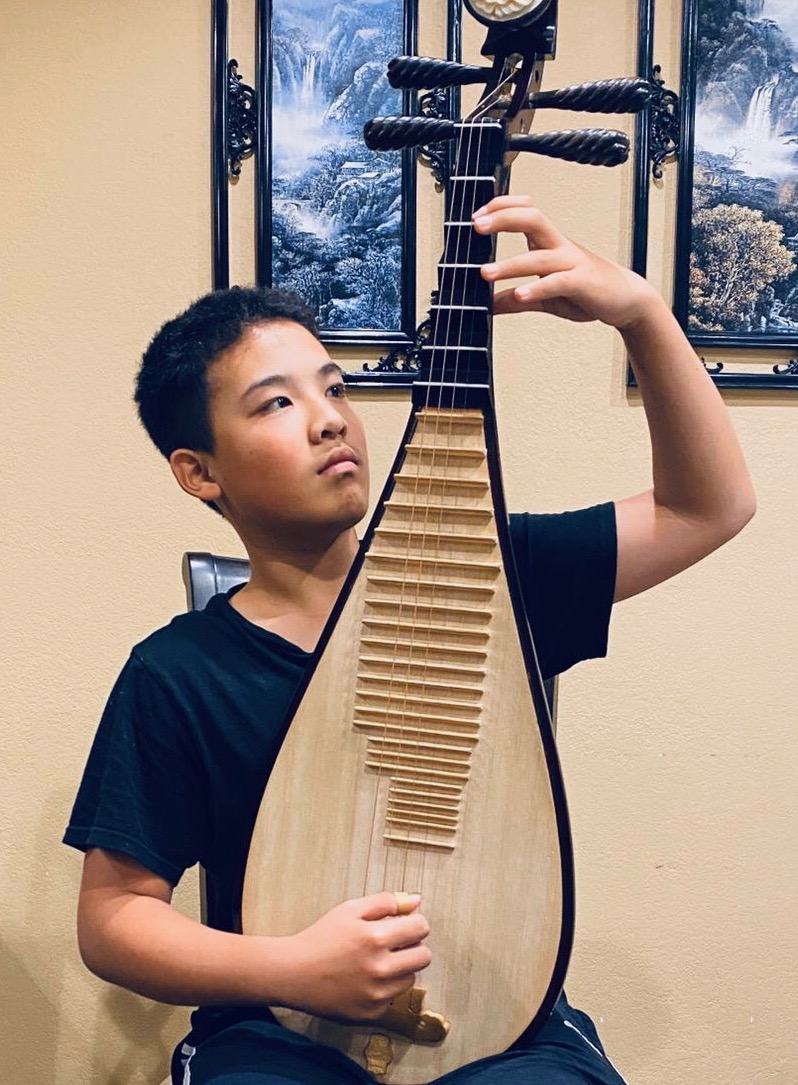 April 13, 2020
April 13, 2020
As we all know, COVID-19 is raging all over the world, so is in the Bay Area. For everyone’s safety, we need to follow the shelter in place order. My son Rex takes online Pipa lessons since March 20. I believe it is the best way currently.
Many thanks to Gordon for the quick adjustment and arrangement. In this way, Rex doesn’t give up and continues his efforts. He changed his learning style through online courses, which is also a new experience. From these last a few weeks, I can see that Gordon spends a lot of time to think of teaching effectively. He showed correct right hand positions by showing the contact point of the fingernail and the string from different angles through the camera. He explained how to coordinate the hand, forearm, elbow, and shoulder. He also demonstrated the left hand posture by pressing the string down and making marks on his own fingers. In order for the students to clearly understand what is the scientific manner, Gordon elaborates on the theory. These are undoubtedly the most effective and clear interpretation of skills for a new student like Rex. Every class Gordon has new perspectives to teach and explain the skills that the student has not yet practiced and integrated well. Carefully interpret the application of each new technique, especially finger movement decompositions, the explanation is very easy to understand. To make a smooth tremolo, he showed how to use the first joint of the index finger. Also he broke down the “wheel” to three steps: first, pop up from the index finger to the little finger; secondly, lift the thumb; thirdly, retract the four fingers. Is it very easy? Of course when my son started to follow, he scrambled and made a mess. However, through the online training of the essential plucking, rolling, and wheeling, Rex’s Pipa skill has undergone a qualitative change. His sound is no longer sharp and noisy, but becomes thick and nicely. Rex’s progress is obvious even though he faces a great challenge of changing bad habits. I’m thankful for the Pipa teacher. My simple words express deeply grateful of mine. I hope this virus crisis will pass quickly and everything will return to normal. My son still likes learning face-to-face. He said it was more vivid and interesting.
Pay tribute again!
February 29, 2020
Dear Teacher Gordon:
It was beyond my expectation. You are so kind and caring so that we have no restraint. When coming to your home, we got lost and the mobile phone signal was bad. You patiently called us over and over to guide us. When I was completely panic-stricken, I was really touched at that time your wife came down from the hill, holding a flashlight to pick us up. My anxiety calmed down instantly. It was very magical that there was no distance between us even though we met in the first time. We all like your teaching methods, and I am particularly impressed by your thorough Pipa skill demonstrations and explanations. Every finger movement is easily understood even for me knowing nothing about it! Rex Ouyang once again showed his desire to learn the Pipa well. In his own words: he is not nervous at all, and hopes that one day, under your instruction, he can be a friend with the instrument and eventually become a good player. I was surprised. Once he was very passive on the Pipa, and even avoided practicing it. I didnt want to force him and asked him what was his real thoughts. Perhaps he didn’t want to continue. In fact he was contradictory. On one hand, he wanted to continue, but was very confused on the other hand. In the last year or so he felt the burden of practice and the stagnation of skills (his skills would deteriorate), so he was very depressed. Before coming to your lesson, he was in a state of remorse. Afterwards, he was happily telling me that he wanted to continue learning the Pipa. After these three lessons, he showed his great interest and confidence again, which is very rare. I really appreciate your guidance.
Rex’s interest in the Pipa was from “Kung Fu Panda.” A rabbit in the movie playing the Pipa repelled the enemy. He felt very magical and powerful, hoping to know what it was. I told him that it was a traditional Chinese instrument with a mythical story of the four great kings. Also I found the Pipa music Ambush from Ten Sides for him. After listening to it, he wanted to learn. At that time, he was just 5, and his willingness persisted until he was 7. We inquired a teacher during that period, and were told that the child was too young to hold the instrument. He had been waiting for his hands growing larger and then began to be a Pipa boy. Now he is 13 and I really thank you!
-- Xiuran
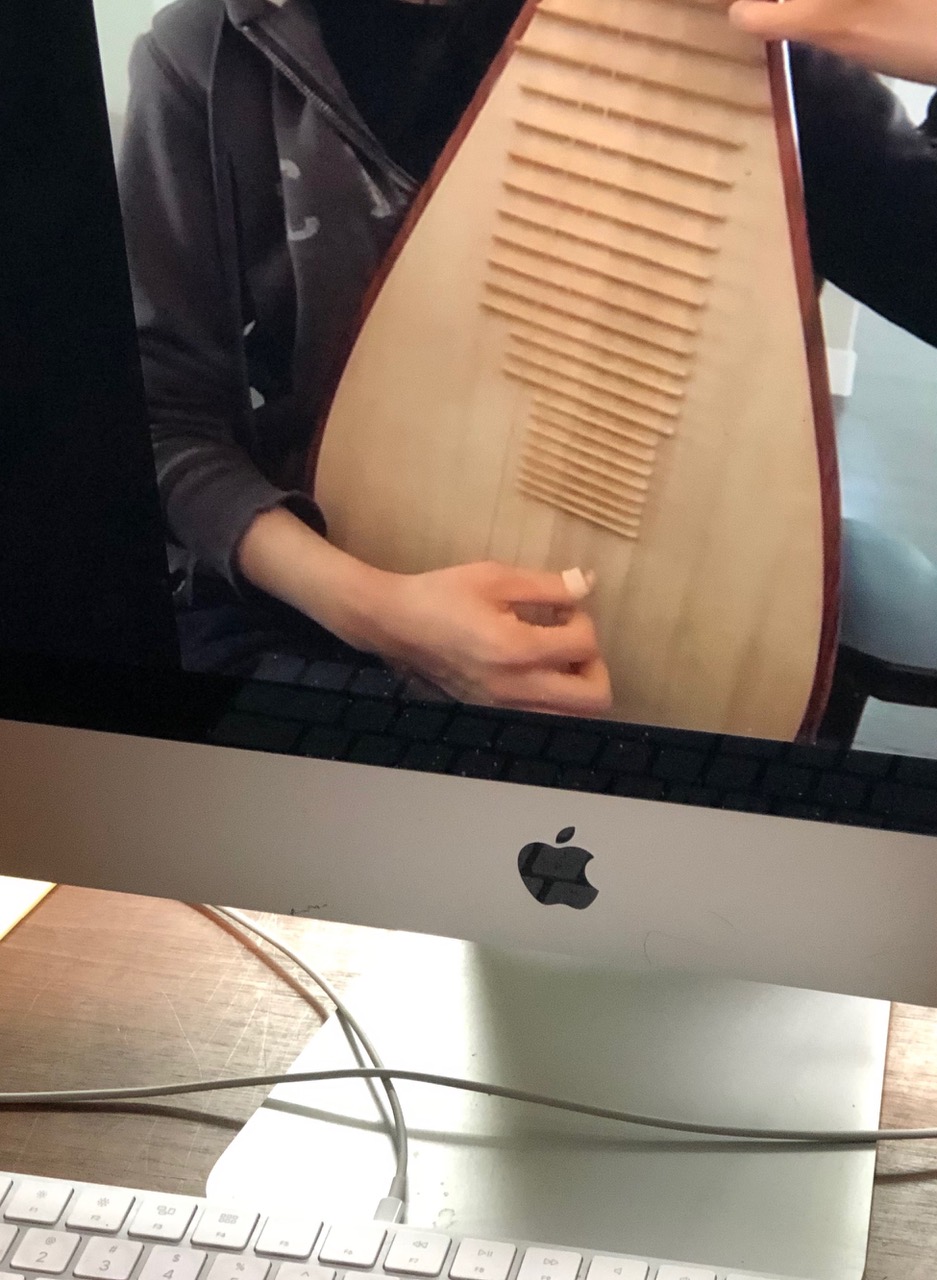 April 6, 2020 (video)
April 6, 2020 (video)
So far, I have started learning the Pipa three times.
The first time was the end of the third year of high school. The remaining little leisure began to ferment, and I found a local teacher to start learning pipa. Soon after the first year of school, heavy work shattered the brain-filled maple daisy, and the Pipa that went north with me was idle in the corner. The second time was my senior year. I followed a Pipa student from the school folk band and continued to practice from basic fingering. Soon after he went to study in the United States, Pipa stayed at home, so he couldn’t do it again.
Two years ago, I found Aimusic.us online and immediately emailed the school. Soon I received a call from Mr. Lee and became a new student.
After just a few lessons, the teacher’s unique teaching method was very refreshing. Before, I always thought that my plucking tone was dull, due to lack of practice. As for how to practice, it is actually unconscious. Every time Mr. Lee takes classes, he must explain how he feels the joints of his fingers, the relationship between the fingertips and the chords, and how to judge the sound quality. In fact, these sensitive feelings come from years of experience and discovery. It is difficult to describe in words. Beginners, like me, are monkeys who have just popped out of rocks, and it is even harder to understand these explanations. However, the teacher continued to talk about this each class, and I continued to listen. In this way, I continued the picking practice for the first six months.
Taking the tension of the second joint when looking for a string, this process lasted for several months. I kept searching for this feeling of tension during the practice, and presented my teacher’s method during the class. If the teacher corrects, I know that the feeling I found is wrong, go back and continue to explore. Finally, one day, in the last pick-up class of “Golden Snake Dance“, the teacher said that I had a few good sounds. Interestingly, I didn’t quite hear the sound quality at that time. From this moment on, every time I popped a good tone, the teacher immediately gave feedback. Over time, my ears have been trained to be sensitive, and the efficiency of my practice has greatly improved. Looking back now, this is a substantial progress. The process of learning the Pipa made me really feel that the learning principles of technology and art are the same. From the continuous trial and error when the understanding and execution are both chaotic and unopened, to accumulate success samples, observe, reflect, refine, and continue to explore in the direction of success. Teachers often emphasize detailed concepts, such as “relaxation” to increase the sensitivity of the senses, such as “saving effort” to increase the stability and flexibility of the hand. Think about it.
For me now, Pipa practice has become a relaxation and an expectation. More than two years have passed and benefited greatly. The road ahead is still long, I am full of expectations.
— Apple engineer, graduated from Tsinghua University, and Ph.D. from University of California, Irvine
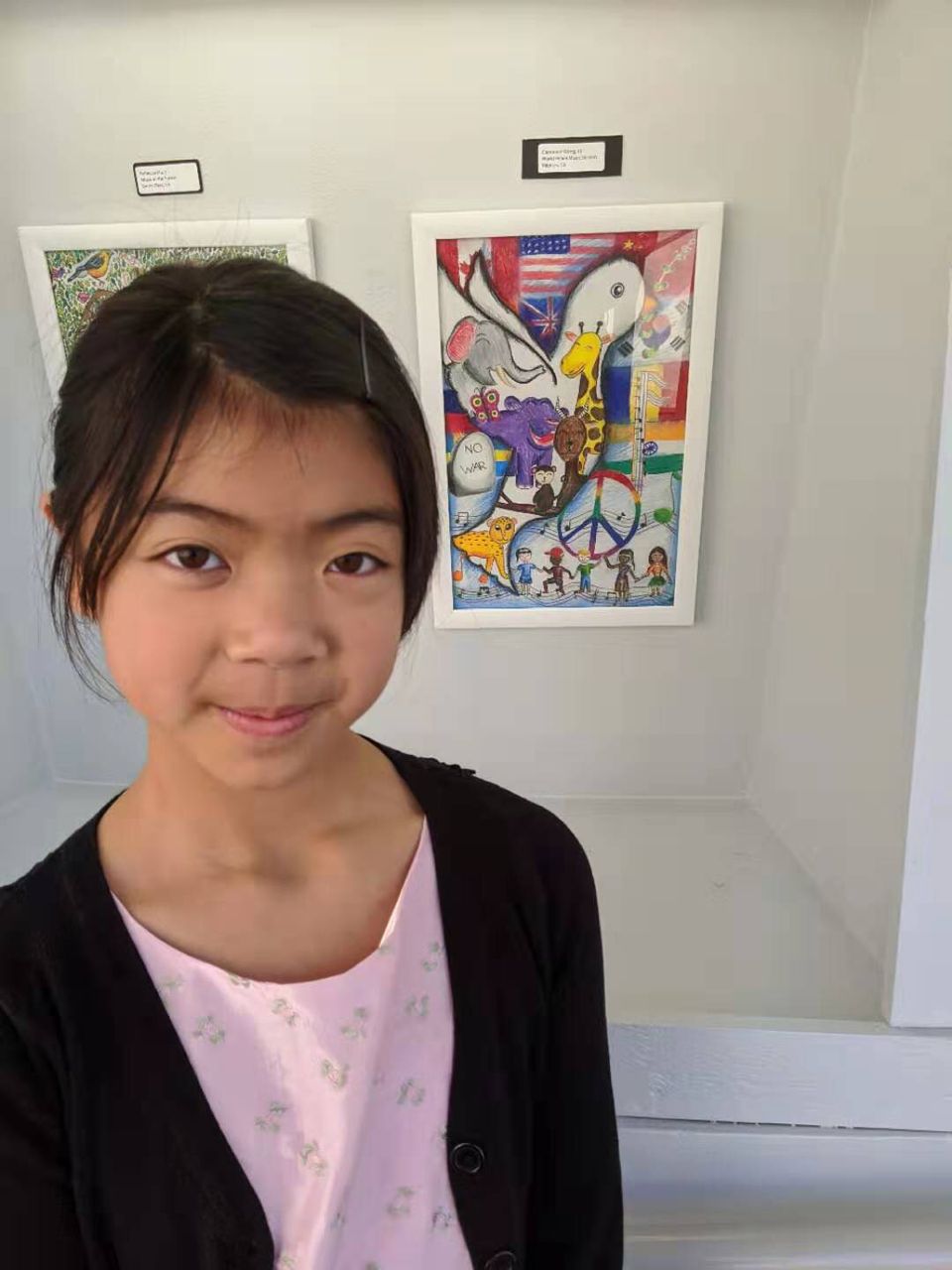 March 8, 2020
March 8, 2020
In a Sunday morning, my daughter Clemence was playing a new ensemble song. She tried and tried her new G key on the numeral notation but still no luck to get it right. When she went to her Pipa class, her teacher taught her to combine the upper rack "Do Ri Me" with a lower rack’s on the D key she’s already mastered. The combination on an extended position made G scales out. Clemence understood instantly and learned the whole music quickly, which had never happened before. My daughter likes this way of Pipa teaching. She feels very fulfilling.
-- Kaimun Wong
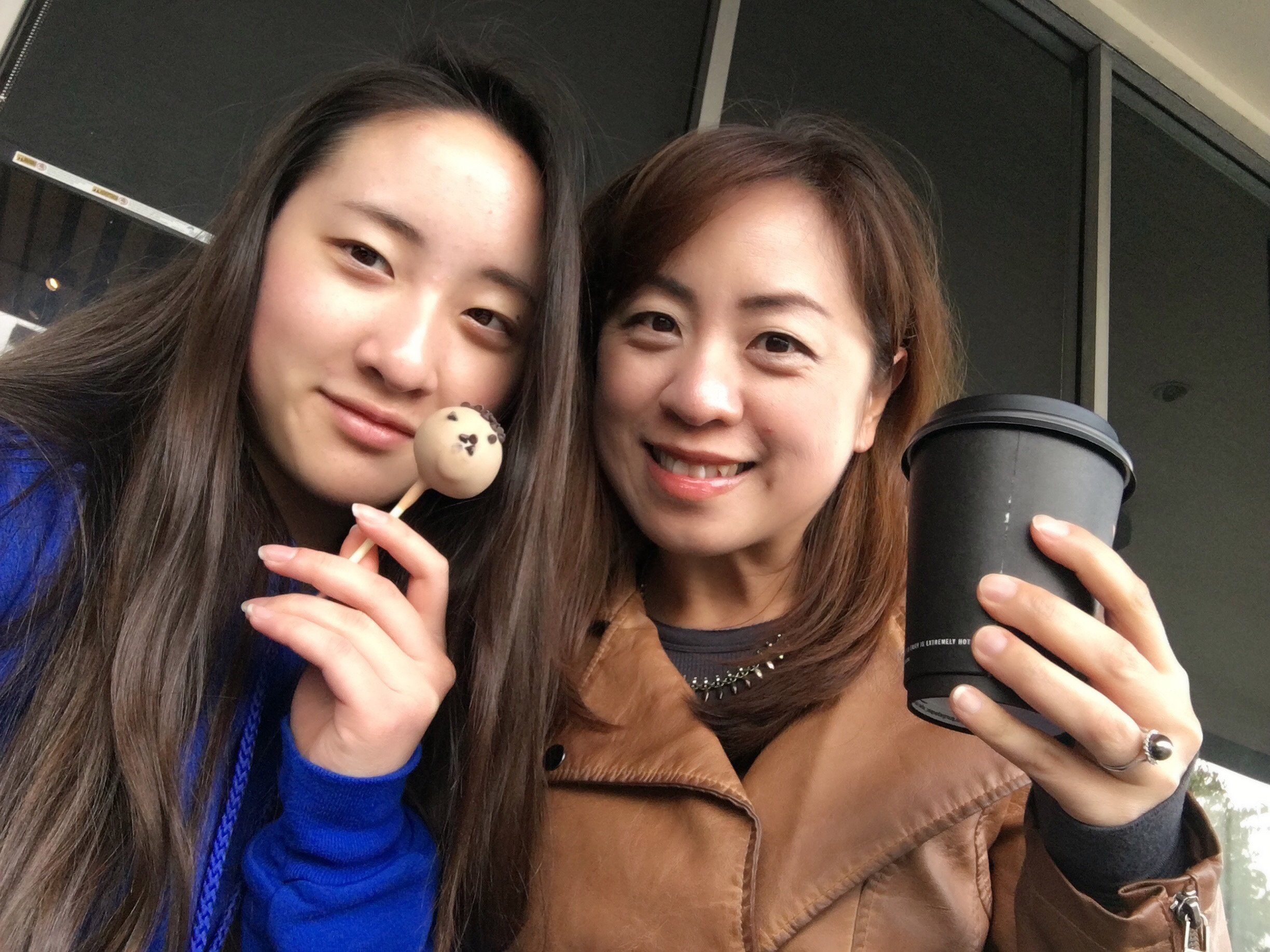 March 3, 2020
March 3, 2020
Joining Aimusic / Firebird Youth Chinese Orchestra is one of the best learning decisions I have ever made. My daughter Megan Banh has been taking the Pipa lessons with Gordon laoshi for over 7 years. Gordon laoshi is very gentle and patient when teaching and listens to students feedback and preferences. Megan learned not only how to play the instrument Pipa but more importantly, she learned how to play with her heart. We are very lucky to have Gordon laoshi as our teacher and would highly recommend to our friends and families.
— Emily
Child Pipa: contact admin@aimusic.us (w/ reasonable price, rental refund, trade-in and buy-back)

